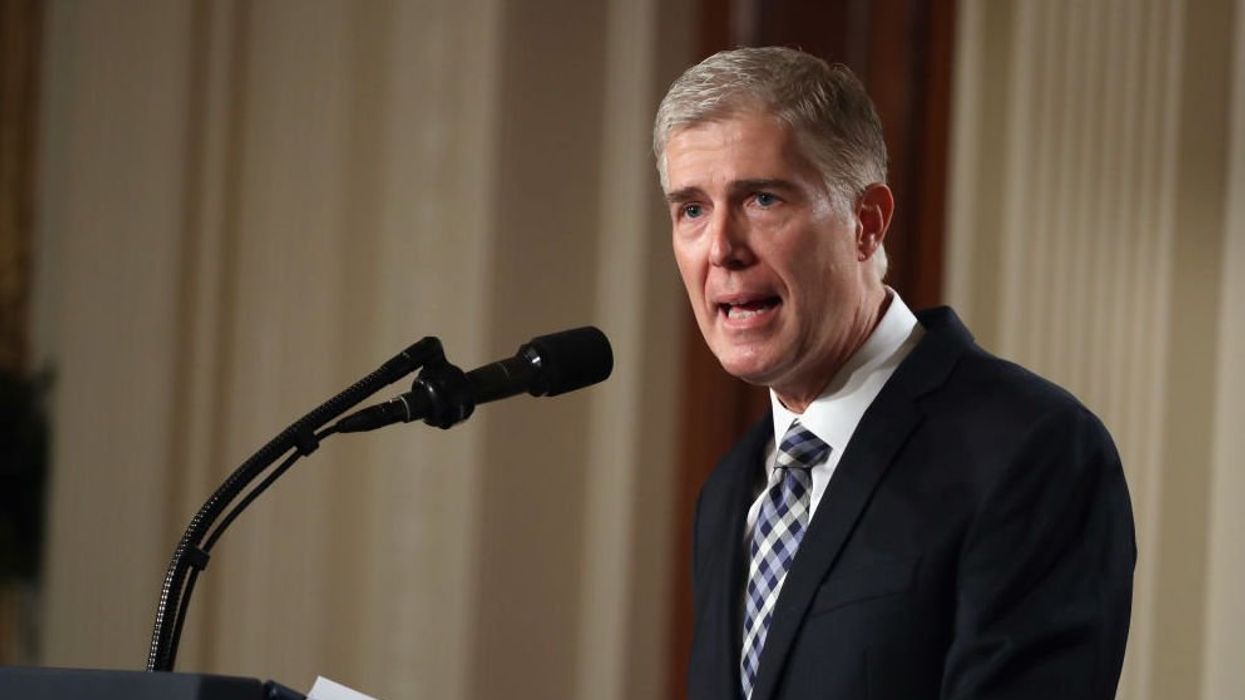Neil Gorsuch upends narrative that tries to delegitimize Supreme Court — then reminds Americans of three important words

Supreme Court Justice Neil Gorsuch shut down on Monday a popular narrative that tries to undermine the legitimacy of the Supreme Court.
As the country becomes more divided over politics, the Supreme Court has becoming increasingly targeted with partisan attacks, especially from people upset that many significant court rulings in recent years do not support the progressive agenda. In response to conservative rulings, critics have demanded numerous court reforms — including court-packing and term limits for justices — while conservative-leaning justices have been subjected to accusations of ethical impropriety, none of which have borne any actual fruit.
'In a democracy, you’re in the driver’s seat. You’re the sovereign. Those famous three first words of the Constitution empower you.'
In a new interview, CBS News correspondent Major Garrett asked Gorsuch to respond to the en vogue narrative about the Supreme Court: that justices are ideologically driven and their decisions are not impartial.
But according to Gorsuch, statistics prove the court is not a place where ideologues dig in their heels.
"I read the other day that in ideologically divided cases — now I don't know what that means — this last term that I agreed with Justice Sotomeyer or Justice Kagan and Justice Jackson something like 45% of the time. That's the court I know," Gorsuch said.
And when Garrett pressed Gorsuch on abortion and affirmative action, the justice once again proved why the narrative is not correct.
"I would say those are deeply complex legal questions on which reasonable minds can, of course, and do disagree," Gorsuch said. "And that when it comes to Roe v. Wade, for example, what did the court decide? It decided that we the people should answer that question, not nine people sitting in Washington, D.C."
And on affirmative action, Gorsuch said, "What did we decide? We decided that all people are created equal — that it’s not acceptable in this country to discriminate on the basis of race."
Finally, Gorsuch dismantled the argument that Supreme Court rulings are stripping Americans of rights. On the contrary, Gorsuch said the court is "taking it back to you."
"In a democracy, you're in the driver’s seat. You’re the sovereign. Those famous three first words of the Constitution empower you," he said. "Do you really want me deciding everything for you?
"All I can say is I don't know better than you do on these questions and that most major Western democracies have decided these questions through the ballot box," Gorsuch explained.
The "famous three words" to which Gorsuch referred, of course, are the opening words of the Preamble to the Constitution: "We the people." Perhaps no three words have had a greater impact on Western democracy than those, and it's telling that a Supreme Court justice felt compelled to remind Americans of the importance of those words.
In another interview this week, Gorsuch delivered a prescient warning to President Joe Biden over his plan to reform the Supreme Court: "Be careful."
Biden's plan, which includes imposing term limits on Supreme Court justices, could likely make the court more partisan. The plan calls for each president to appoint two new justices over a four-year term, thus turning over the court every 18 years.
Under such a plan, Supreme Court appointments would almost certainly be tied to presidential politics in a way the founders did not want.
Like Blaze News? Bypass the censors, sign up for our newsletters, and get stories like this direct to your inbox. Sign up here!
Source link

